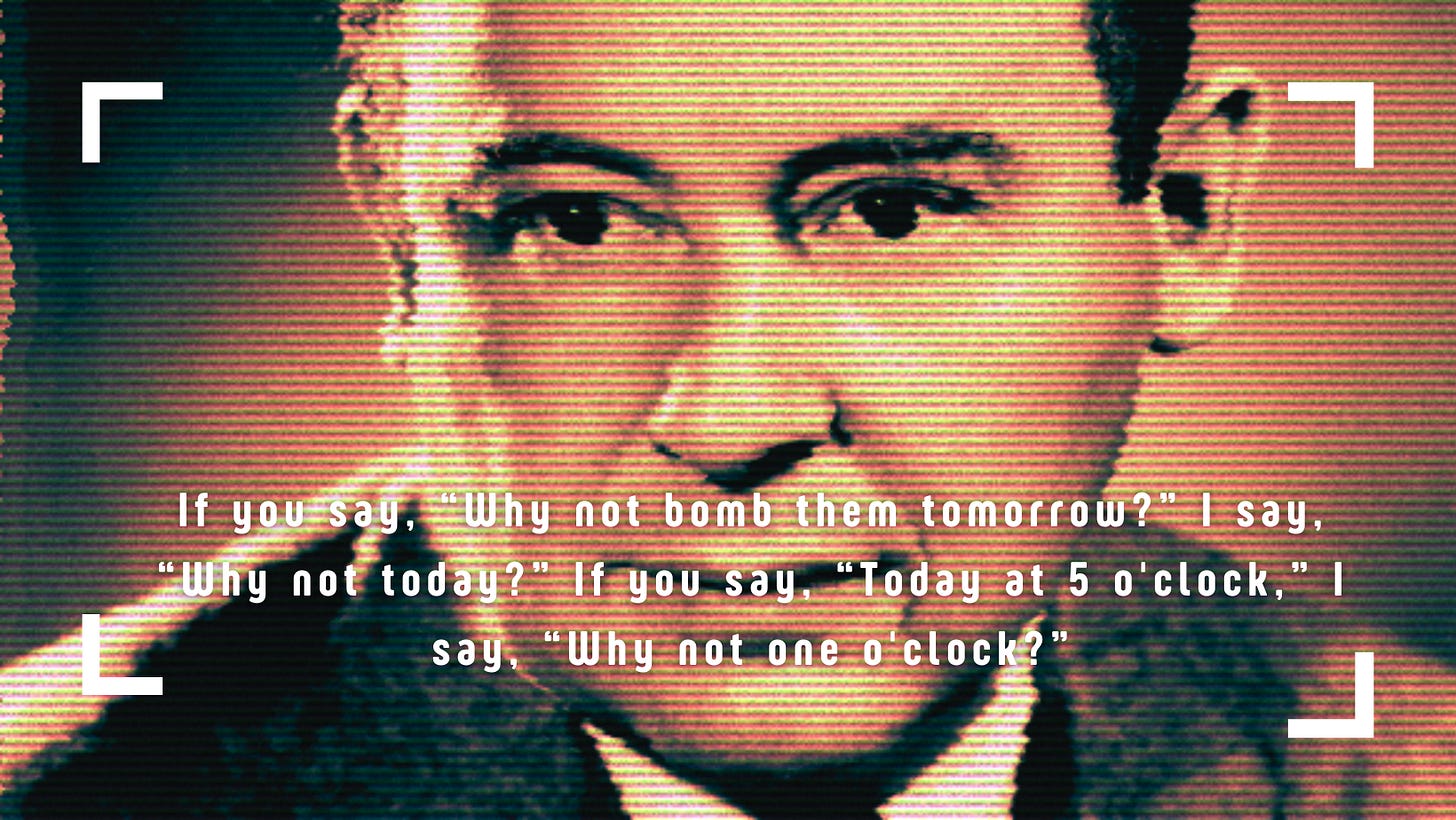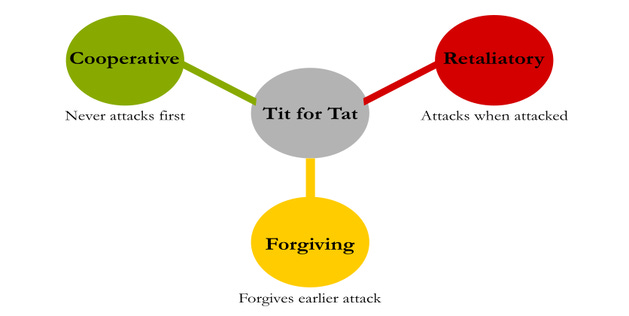Why Denuclearization won't happen
Applying the Theory of Games to Trump's Megatons to Megawatts 2.0 remarks
John von Neumann Predicted the Outcome of WWII — And Warned Us About What Comes Next
John von Neumann, one of the founding fathers of game theory, mathematically modeled global conflict and applied his theory of games to World War II. From the very beginning, he was confident in an Allied victory.
But von Neumann didn’t stop there. Convinced that Soviet intelligence had already obtained many details of the atomic bomb design, he foresaw the inevitable rise of the USSR as a nuclear power. In his view, this development would make a future war with the United States unavoidable. Von Neumann recommended a preemptive nuclear strike on Moscow, aiming to eliminate the threat and secure U.S. global dominance before mutual destruction became possible. By 1953, however, the Soviet Union possessed an estimated 300–400 warheads, rendering such a strike futile—any attack would now trigger catastrophic retaliation.
Fast forward to today:
In January, Donald Trump expressed rare Republican support for renewed nuclear talks with China and Russia. “Tremendous amounts of money are being spent on nuclear,” he said. “We want to see if we can denuclearize, and I think that’s very possible.” The Kremlin responded positively, signaling interest in resuming dialogue.
Yet, I’m here to tell you: it won’t happen.
The Prisoner’s Dilemma
The Prisoner’s Dilemma is a classic game theory scenario involving two rational agents who must choose between cooperation and betrayal. Rational self-interest leads both to betrayal, leaving both worse off than if they had cooperated.
This model maps perfectly onto nuclear disarmament. Here’s how:
Why It’s a Classic Dilemma
Rational self-interest leads to suboptimal outcomes. In the context of nuclear disarmament, each country has a strong incentive to defect, regardless of what the other side does. After all, the potential strategic advantage of being the only nuclear power is too tempting to ignore.
But this logic creates a dangerous trust deficit. Neither side can be certain the other will honor a disarmament agreement, especially when the risks of being the only one to disarm are so high.
Is There a Way Out?
Robert Axelrod’s game theory tournaments in the 1980s found that the Tit for Tat strategy consistently performed best. Using this strategy, you start by cooperating and then always mirror your opponent’s last move. You may forgive your opponent for cheating and start cooperating again. It works because it promotes cooperation without being naive and discourages exploitation. Further, it rewards mutual trust and punishes betrayal.
The Ironic Truth
However, this strategy is designed for cases where both parties have no previous experience with each other. This is not the case here. Hence, despite what game theory tells us about the benefits of cooperation, the dominant strategy still prevails in nuclear politics: Defection. The stakes are simply too high to start by cooperating. Especially when considering that the US just briefly started a trade war with everybody, including its allies. At the same time, Russia is involved in a physical war with its brother nation, Ukraine. So, how could one call either party trustworthy? Surely, both of them are aware of this and would either not sign a disarmament agreement or simply cheat.
Von Neumann saw this coming. The very logic of self-preservation may lead to mutual destruction. Therefore, while the possibility of Denuclearization may put some pressure on uranium equities in the near term, it is not a serious threat long term because it simply won’t happen.




